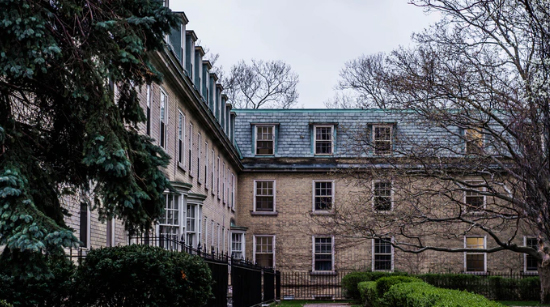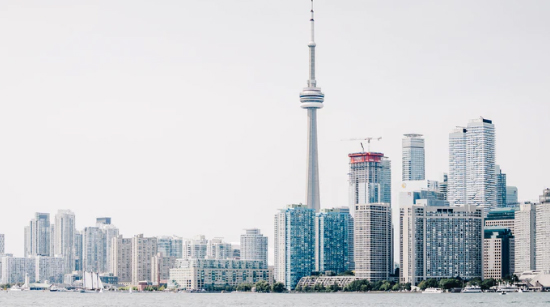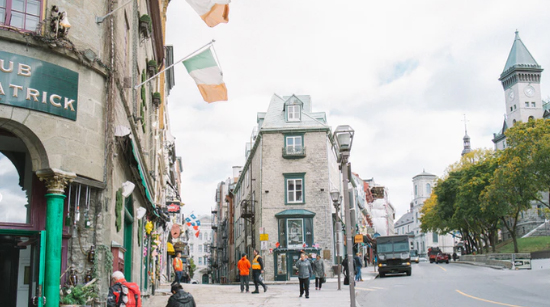Getting a global education is not about the education alone. It’s about the experience of living in another country and another culture. And few countries are ahead of Canada when it comes to this experience – it tops the list in best-quality-of life rankings. Add to that the fact that it offers an excellent quality of education, with over 26 Canadian universities being listed in the world university ranking platforms, like Quacquarelli Symonds (QS) and Times Higher Education (THE).
It’s not for nothing that today more than 642,480 international students call Canada home. What’s more is that more than 90% of international students are highly satisfied with their studies in Canada.
So, what it is that makes Canada a popular global ed destination? We’ve done a deep-dive right here, where we’ve looked into the following:
- The best universities
- The best student cities
- Fun things to do in Canada while studying
- Working in Canada

If you’re considering Canada for graduation, post-graduation, PhD, or any diploma courses, you’ll be opting for, what is referred as, the post-secondary schools.
It consists of:
- Colleges
- Universities
- Private career colleges
- Vocational and technical schools
The distinction between universities and colleges is that universities are degree-granting institutions, meaning that they provide bachelor’s degrees, master’s degrees, and doctoral degrees. Colleges, on the other hand, (mostly) grant diplomas, though there are some limited set of bachelor’s degree programs which are offered through joint programs with universities.
Canada boasts of a high-quality education where two out of every five academics (at university level) hold at least one global degree. Top that with the fact that 14 0f the top 300 universities worldwide are from Canada.
To help you shortlist universities, here’s a quick look at the globally ranked universities (by two ranking platforms) for your reference.
| University |
QS Ranking
(2020) |
THE Ranking
(2020) |
| University of Toronto |
29th |
18th |
| McGill University |
33rd |
42nd |
| University of British Columbia |
47th |
34th |
| University of Alberta |
109th |
136th |
| McMaster University |
146th |
72nd |
| University of Montréal |
149th |
85th |
| University of Waterloo |
163rd |
201st – 250th |
| Western University |
214th |
201st – 250th |
| University of Calgary |
229th |
201st – 250th |
| Queen’s University at Kingston |
239th |
251st – 300th |
| Simon Fraser University |
264th |
251st – 300th |
| Dalhousie University |
279th |
251st – 300th |
| University of Ottawa |
289th |
141st |
| University of Victoria |
359th |
401st – 500th |
| Laval University |
402nd |
251st – 300th |
| Concordia University |
464th |
401st – 500th |
| York University |
481st |
401st – 500th |
| Université du Québec |
541st – 550th |
601st – 800th |
| University of Guelph |
581st – 590th |
501st – 600th |
| University of Manitoba |
601st – 650th |
351st – 400th |
| Carleton University |
651st – 700th |
501st – 600th |
| Memorial University of Newfoundland |
651st – 700th |
501st – 600th |
| Université de Sherbrooke |
651st – 700th |
601st – 800th |
| University of Windsor |
651st – 700th |
601st – 800th |
| Ryerson University |
801st – 1000th |
601st – 800th |
Canada has a warm and welcoming environment – it’s one of the reasons why so many students choose it as a preferred global ed destination. A total of five Canadian cities are listed in the QS Best Student Cities 2019, where four are featured in the top 50.
These include the following, listed in order of the QS Best Student Cities 2019 ranking:
- Montreal – 9th
- Toronto -11th
- Vancouver – 16th
- Ottawa – 45th
- Quebec (city) – 115th
Let’s look at them one-by-one.
(Do note: The university lists mentioned here are not inclusive of other degree-awarding institutions, general and vocational college.)

Featured in the Top 10 (QS Best Student Cities 2019) ranked at 6th, Montreal is one of the popular student cities in Canada. Known as the largest French-speaking city in the world outside Paris, Montreal offers an exciting cultural diversity to international students. There are seven universities in Montreal including the second highest ranked universities in Canada, McGill University.
The other five universities are:
- Concordia University
- École de technologie supérieure
- HEC Montréal
- Polytechnique Montréal
- Université de Montréal
- Université du Québec à Montréal (UQAM)
The plus point about Montreal is that it has the lowest accommodation and transportation costs compared to other student cities in Canada like Toronto and Vancouver.

The largest city in Canada, Toronto, is among the top student cities ranked at 11. The city is also known as one of the most multi-cultural cities in the world as around half of its 2.8 million-strong population hails outside of the city. It is also home to the highest ranked Canadian university – the University of Toronto.
Here’s the list of universities in Toronto:
- University of Toronto
- Ryerson University
- University of St. Michael’s College
- OCAD University
- University of Trinity College
- Victoria University
- York University

A small but vibrant city, Vancouver is a perfect place for those looking at an easy-going city (and cold weather) to study and live in surrounded by lush green landscapes like the Queen Elizabeth Park, North Shore among others.
It is also home to multiple globally ranked universities. These are:
- The University of British Columbia
- Simon Fraser University
- Emily Carr University of Art + Design
- Vancouver Island University
Did you know that Ottawa is home to Rideau Cana, the oldest operated canal system in North America? Ottawa is filled with such other historical sites. The city is also featured as one of the top 50 best student cities in the world ranked at 45.
There are two universities in Ottawa, both of which are globally ranked:
- University of Ottawa
- Carleton University

Quebec City is not just a study destination but also a historic city with 37 National Historic Sites of Canada in Quebec City. At Quebec City, you get to explore all these amazing sites while you study. Quebec City is also featured as the 115th best student cities in the world.
There are five universities in Quebec including those globally ranked as well:
- Université du Québec
- Université Laval
- École nationale d’administration publique
- Université TÉLUQ
- Institut national de la recherche scientifique

A true seat of diverse culture and ethnicities, there are some 250 ethnic groups in Canada. This is what makes the country and living there so special – it provides an excellent opportunity to experience a multi-cultural study environment.
Apart from studying, there’s a lot you can do to enrich your living experience. From outdoor activities to entertainment and sightseeing places, the list is endless. Here are some ideas for all that you can do while studying in Canada:
- 1. Skiing: Whether you are a beginner or a pro, Canada offers some stunning options for skiing.If you are not a skier, this might be a good time to learn – you’ll never have a better opportunity than when you are studying there. Some popular ones are:
- 2. Strolling by the lakes: Canada is also home to glittering, picturesque lakes. Taking a stroll down one of these can be a calming and memorable experience.You can check these out if you get a chance:
- 3. Water canoeing and rafting: If water sports is what excites you, then Canada has a lot to offer.Here are some fun places to do this:
- 4. Hiking & camping: If you like the mountains, then hiking and camping is a great way to get away from the madding crowd for a while.Here are some suggestions
- 5. The fun and some off-beat stuff: While the list for what you can do in Canada is endless, there are some must-dos that you should know of.Check these out
- Calgary Stampede – an annual 10-day outdoor festival filled with rodeo shows, exhibitions, rides and games
- Montreal Jazz Festival – a must for music lovers, it’s the biggest Jazz festival in the world
- Just for Laughs Festival – remember the TV show ‘Just for Laugh’? Well, here’s a chance for you to attend where great comedians and theatre groups are featured.
- The Enchanted Forest – a charming, fairytale-land in Malakwa, British Columbia that has some 350 fairy figurines hidden amongst ancient cedar trees.
- Sewers of Toronto – not a usual choice for sightseeing, but these amazing ancient network of cave-like tunnels can be mesmerizing to see
And last, but definitely not the least, don’t forget to visit Niagra Falls while in Canada – they are way more stunning when seen from the Canadian side!
One thing you can be sure of is that at Canada, you will never run out of things to do, whether it is fun outdoor activities or an educational tour at historical sites or attending events.
The living cost in Canada (for international students) is estimated at around CAD 12,000 per year [approximately ₹6,38,00] including accommodation.

With a welcoming immigration policy, international students can work while studying and post-study as well. Opting for Post-study work opportunities in Canada can also lead to Permanent Residency (if you desire).
Yes! Part-time job is allowed in Canada. If you are thinking of opting for it then there are four ways you can do so, i.e.
- On-campus work
- Off-campus work
- Co-op placements
- Internships
International students are allowed to work for up to 20 hours per week during regular session, and full-time during holidays. The (minimum) wages/salaries, however, differs by province. It will also depend on the kind of job position undertaken and on the employer. The Minimum wages (hourly) set per province are-
| Province |
Minimum Hourly Wage
(CAN $) |
| Alberta |
$15.00 |
| British Columbia |
$13.85 |
| Manitoba |
$11.65 |
| New Brunswick |
$11.70 |
| Newfoundland & Labrador |
$11.65 |
| Northwest Territories |
$13.46 |
| Nova Scotia |
$12.55 |
| Nunavut |
$13.00 |
| Ontario |
$14.00 |
| Prince Edward Island |
$12.85 |
| Quebec |
$12.50 |
| Saskatchewan |
$11.32 |
| Yukon |
$13.71 |
Canada offers great career opportunities and that is one reason why the country reportedly had 313,580 people immigrating to the country in 2019 alone. So, if you have completed your studies from Canadian universities, you can definitely work in Canada after your studies.
There are three ways to work in Canada after finishing your studies:
- Post-graduation work permit: This permit is temporary. This will help you get a Canadian job experience and further apply for permanent residency through Express Entry
- Express Entry: This permit is for skilled workers (immigrants) who wants to settle in Canada permanently.
- Provincial Nominee Program: Here (almost) all of Canada’s provinces and territories nominates people to immigrate to Canada. So, an international student can apply for this by contacting the province interested.
You can find out more about working in Canada after your studies by visiting the official page on Studying in Canada after Graduation.
So, that leaves us with the question- is it easy to get a job in Canada? The answer is, Yes. Based on your skill type and skill level listed on the National Occupation Classification (NOC), you can check eligibility and apply for a job in Canada. To start with, there are five skill types under which you can seek work, i.e.
- Skill Type 0 (zero): This is for management jobs that includes-
- restaurant managers
- mine managers
- shore captains (fishing)
- Skill Level A: These are professional jobs (a cherry on the top for those who graduated from Canadian University) including:
- doctors
- dentists
- architects
- Skill Level B: This is more of technical jobs and skilled trades (suitable for those with college diploma or training as an apprentice), jobs such as:
- Chefs
- Plumbers
- Electricians
- Skill Level C: These are intermediate jobs that are suitable for those with high school and/or job-specific training, such as:
- industrial butchers
- long-haul truck drivers
- food and beverage servers
- Skill Level D: These are labour jobs that usually give on-the-job training, (and less relevant to an international student in Canada):
- fruit pickers
- cleaning staff
- oil field workers
Based on these levels, you can apply for different criteria, i.e. Canadian Experience Class, Federal Skilled Workers Program, Federal Skilled Trades (Express Entry), Provincial Nominee Program, and Atlantic Immigration Pilot.
You can visit the Job Bank by the Government of Canada where more than 100,000 jobs across Canada are listed. Sign up/apply for the job you are eligible for and get ready for a Canadian job experience.
Here’s an important tip: Your Language skills, fluency in English and/or in French will be one of the eligibilities points that will be considered for migration, working or applying for a citizenship to Canada.
All things considered – the quality of education, the living standard or the ease of living, Canada is surely among the top. This explains why it remains a popular global ed destination. Few others offer all that Canada does to International students – from a robust post-study-work opportunity to excellent study and living standard.
If you are ready for that global education, then start looking at Canada – it’s the best place you can move to.














![Best Universities in New Zealand for International Students [2025 Rankings]](https://tcglobal.com/wp-content/uploads/2025/09/Best-Universities-in-New-Zealand-for-International-Students-2025-Rankings-600x338.png)